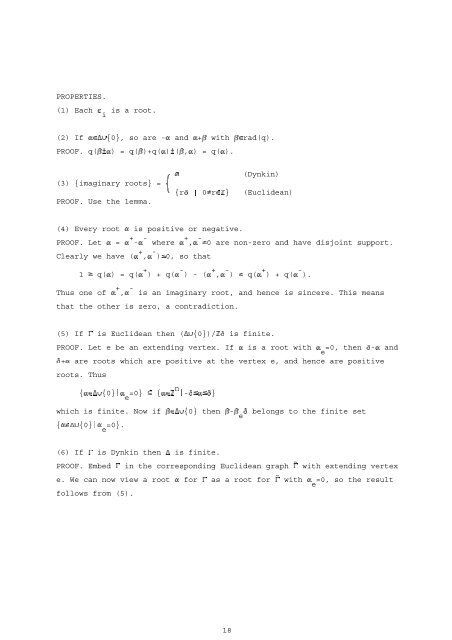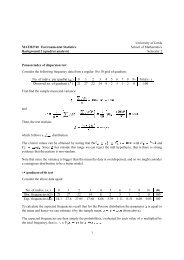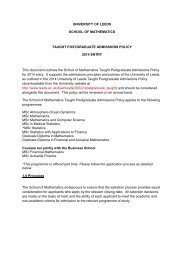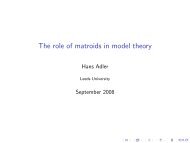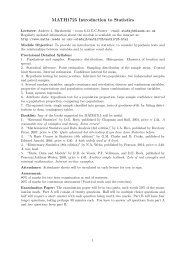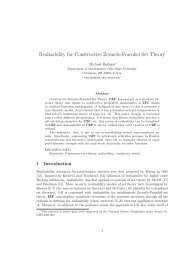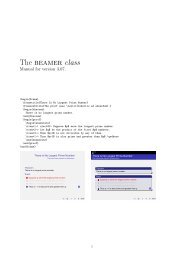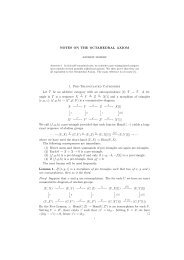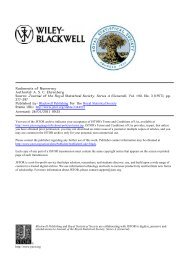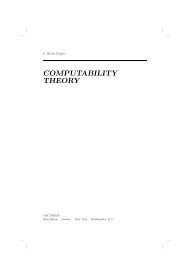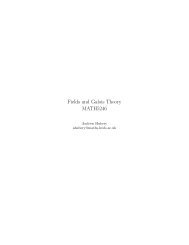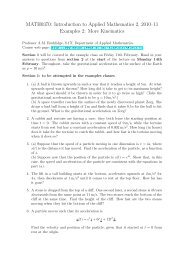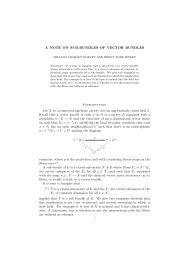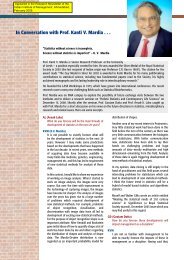Lectures on Representations of Quivers by William Crawley-Boevey ...
Lectures on Representations of Quivers by William Crawley-Boevey ...
Lectures on Representations of Quivers by William Crawley-Boevey ...
Create successful ePaper yourself
Turn your PDF publications into a flip-book with our unique Google optimized e-Paper software.
PROPERTIES.<br />
(1) Each is a root.<br />
i<br />
(2) If ¤ ¡ ¢ {0}, so are -¤ and ¤ +¥ with ¥ ¡ rad(q).<br />
PROOF. q(¥¡ ¤ ) = q(¥ )+q(¤ ) (¥ ,¤ ) = q(¤ ).<br />
§£¢ (Dynkin)<br />
(3) {imaginary roots} = ¨© {r § ¢ 0£ r¡ ¦ } (Euclidean)<br />
PROOF. Use the lemma.<br />
(4) Every root ¤ is positive or negative.<br />
+ - + -<br />
PROOF. Let ¤ = ¤ -¤ where ¤ ,¤ £ 0 are n<strong>on</strong>-zero and have disjoint support.<br />
+ -<br />
Clearly we have (¤ ,¤ )¤ 0, so that<br />
+ - + - + -<br />
1 £ q(¤ ) = q(¤ ) + q(¤ ) - (¤ ,¤ ) £ q(¤ ) + q(¤ ).<br />
+ -<br />
Thus <strong>on</strong>e <strong>of</strong> ¤ ,¤ is an imaginary root, and hence is sincere. This means<br />
that the other is zero, a c<strong>on</strong>tradicti<strong>on</strong>.<br />
(5) If is Euclidean then ( ¢ {0})/¦ § is finite.<br />
PROOF. Let e be an extending vertex. If ¤ is a root with ¤ =0, then § -¤ and<br />
e<br />
§ +¤ are roots which are positive at the vertex e, and hence are positive<br />
roots. Thus<br />
{¤ ¢ ¡ {0}<br />
n ¢ {¤ ¡ ¦ ¢ § ¤ ¤ ¤¦¤ §<br />
=0}<br />
e<br />
- }<br />
which is finite. Now if ¥ ¡ ¢ {0} then ¥ -¥ § bel<strong>on</strong>gs to the finite set<br />
e<br />
{¤ ¡ ¢ {0} ¢ ¤ =0}.<br />
e<br />
(6) If is Dynkin then ¢ is finite.<br />
~<br />
PROOF. Embed in the corresp<strong>on</strong>ding Euclidean graph with extending vertex<br />
~<br />
e. We can now view a root ¤ for as a root for with ¤ =0, so the result<br />
e<br />
follows from (5).<br />
18


